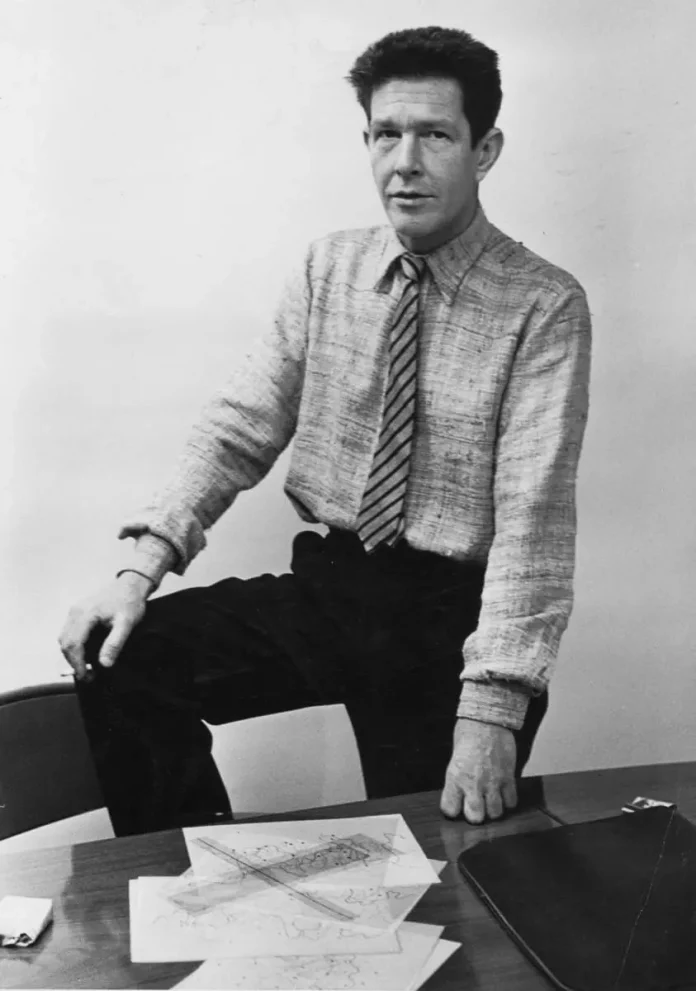One of John Cage’s convictions is that everyday sounds can be a source of pleasure or stimulation in themselves, and it’s one that’s obviously true; can’t you remember the last time you decided, on the way to work, that hundreds of feet padding across a station forecourt can sound nice? Or the time the noise made by a number 38 bus as it pulled away from the stop you were passing woke you up and sent you to the office in a better mood?
Things like this happen a thousand times a day – all part of life, and all that. But to take those sounds, and others in the same category, and reproduce them in the artificial atmosphere of a concert hall as the raison d’etre for your prescence there, when you can’t pass by and move on up the street to your next moment of existence – well, that seems to me to indicate either staggering naivety or a finer-honed degree of perceptiveness than I’m ever likely to possess.
I’ve been prompted to these reflections because of what happened when Richard Rodney Bennett and Karin Krog presented their ‘Synthesis’ recital at the Purcell Room in November and the Jazz Centre Society in December. The programme (which should have been re-titled ‘Juxtaposition’, since ‘jazz’ and the ‘classics’ co-existed rather than fused) included a performance by Karin of Cage’s Aria For Voice And Live Electronics, and consisted of vocal sounds modulated electronically as well as amplified by a microphone in the usual way. I got nothing out of it.
Later, she did Cathy Berberian’s Stripsody, a more overtly humorous piece, consisting in part of the intonation of words and phrases (a couple were ‘slurp’ and ‘come out of that tree you silly cat’), once again through mike and modulator. Here it was possible to appreciate from the shape of the lines that only a singer (or at least someone who’d taken a few singing lessons) would have been able to negotiate the piece.
I need, however, for my own peace of mind, to try to work out a reason why, and I can only suggest that this is what happens when performers of great ability decide that they’ve explored established musical forms as far as is possible, and pass on to the examination of areas of pure sound. And while I can understand the fascination of the discovery of new techniques, just as I can imagine myself sitting down with my guitar, finding that I can play a particularly complex arpeggio, and then playing it with delight for half an hour, I wouldn’t expect any of it to turn on an audience. And here I’m stymied once again, because I know there is an audience. If any of them would care to write and try to tell me what I’m missing, I’d be grateful.
Two parts of the programme were more conventional, at least in outline: these were groups of American songs, of the 30s and of today respectively. Backed by Bennett’s too-discreet piano, Miss Krog sang Sophisticated Lady with a Sarah Vaughan influence, even down to Sarah’s habitual unwillingness to give the words any meaning; clever, but no soul. This was even more apparent in the second group: Karin’s version of Antonio Carlos jobim’s Wave was far too fast, although it said much for her skill, packing lots of words into a tiny space without making a boob, and Jim Webb’s By The Time I Get To Phoenix, a lovely number with a quite definite built-in rhythmic flow, was performed jerkily, almost out of tempo, destroying the impact of the strong lyric. No-one announced that the Purcell Room’s heating system was out of action for the evening, but things were pretty cool just the same.
I haven’t enjoyed writing this, and have only done so because I feel obliged to do a review if a promoter gives me free tickets; but you reach a point when the I-don’t-like-it-but-if-somebody-does-there-must-be-something-in-it approach is of no use, and when bending over backwards is productive of little else but a collection of aches in all the wrong places.
















